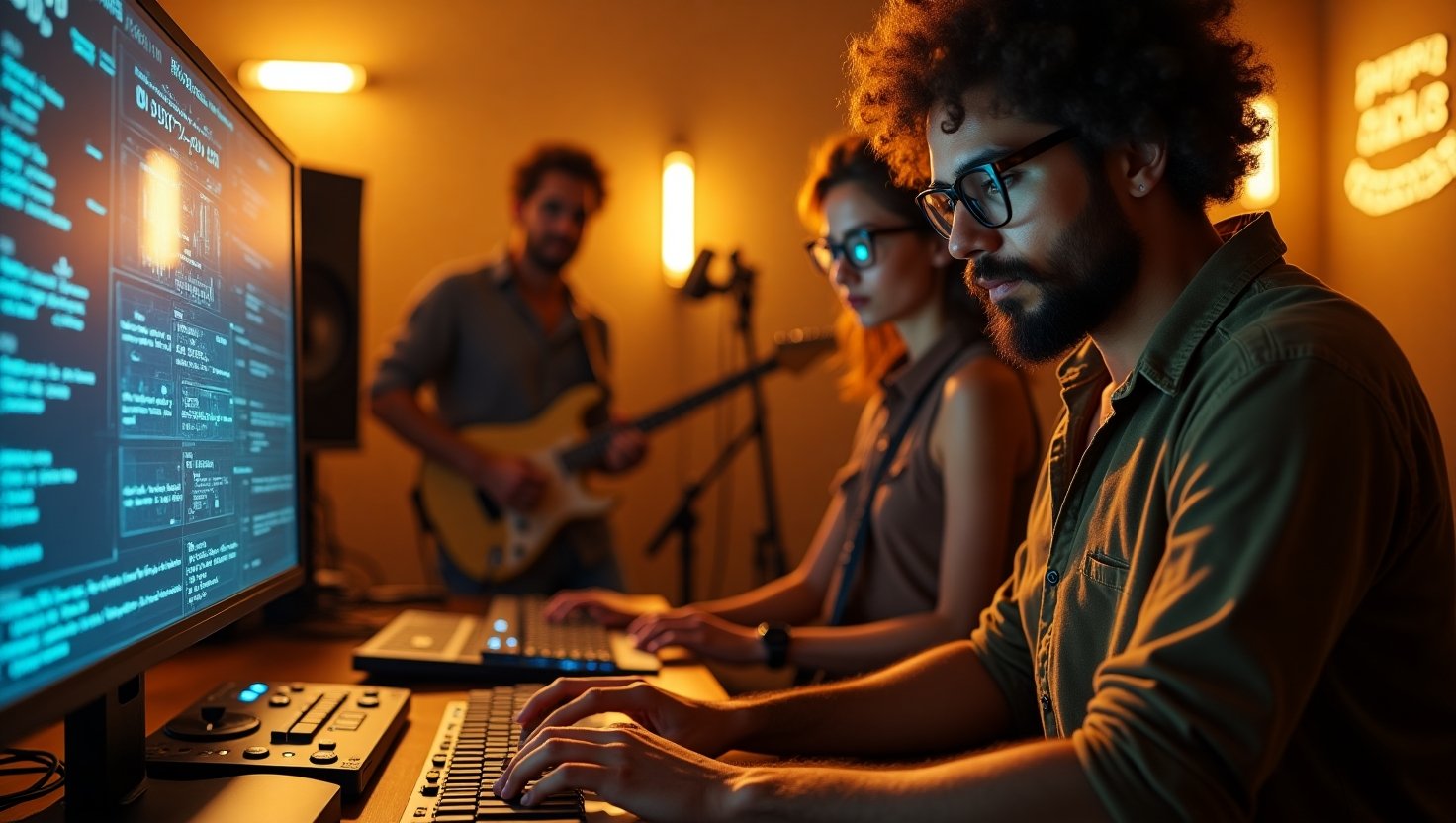The Revolutionary Impact of AI Music Generation on the Future of Sound
Introduction
Artificial Intelligence is sweeping across industries, transforming the way we perceive and interact with technology. One particularly fascinating frontier is AI Music Generation. This groundbreaking technology is reshaping not only how we create music but also how we experience it. Within this ecosystem, innovations like Google’s Magenta RT are setting new benchmarks in Real-Time Music creation, promising instant feedback and dynamic interactivity. As the open-source movement catalyzes creativity further, the era of Generative Audio is here, pushing the boundaries of what was previously inconceivable in the world of sound.
Background
The journey of AI in music began years ago, with algorithms initially limited to simple sound patterns. However, as technology advanced, complex projects started emerging, one of the most notable being Google’s Magenta. Launched to explore the intersection of machine learning and music, Magenta began making waves by leveraging neural networks to generate musical compositions previously thought beyond the capabilities of machines. The open-source nature of these projects has democratized access, enabling a global community of artists and engineers to contribute, refine, and innovate. This collaborative ecosystem has led to a vibrant explosion of creativity in music generation, allowing anyone with an idea to explore AI-assisted composition without high entry barriers.
Trend
AI’s capability in real-time music composition is not just a technical achievement; it is opening new realms in musical experiences. A tool like Magenta RT enables instantaneous interaction between musician and machine, setting the stage for unprecedented dynamic control in music production. Imagine a jazz musician seamlessly integrating an AI as a band member onstage, each playing off the other’s creativity in real-time. Such possibilities exemplify how user engagement is evolving, with AI no longer simply a tool but a collaborative partner. The trend suggests that as more musicians adopt and adapt to these tools, the lines between digital and traditional musicianship will blur, forging a unified musical universe that thrives on innovation (MarkTechPost).
Insight
Generative audio is poised to redefine the music industry, offering a glimpse into a future where AI assists in creating new genres and sounds. This transformation is supported by compelling statistics: Magenta RT can generate audio at a speed of 1.25 seconds for every two seconds of music, a pace astonishing compared to traditional music-making processes. With a training pool comprising approximately 190,000 hours of instrumental stock music, models like Magenta RT are not just fast; they are imbued with a rich tapestry of musical understanding. The implications are profound as artists discover new forms of expression, complementing their creativity with AI’s capabilities (MarkTechPost).
Forecast
Looking ahead, the potential growth of AI in music generation seems boundless. As algorithms become more sophisticated, scalability will increase, making it feasible for larger compositions and even collaborative AI-led symphonies to unfold. In personal music creation, AI could evolve into a personal assistant, adapting to an individual’s style and preferences, crafting bespoke musical pieces instantly. For professionals, AI-tools might offer advanced analysis and composition capabilities, accelerating production schedules and introducing new revenue streams. This future landscape hints at a democratized music world where creativity flourishes unbounded by technical limitations.
Call to Action
The future of sound beckons, and now is the time to explore these fascinating tools. Whether you are a musician, a hobbyist, or simply curious, delve into AI music generation and explore the dynamics of Magenta RT. For continuous updates and breakthroughs in this exhilarating field, following initiatives like Google’s Magenta can provide invaluable insights into the journey of uniting creativity with technology. To immerse yourself further, consider reading about real-time AI music generation models (MarkTechPost). Get ready to witness the symphony of artificial and human intelligence unfold in perfect harmony.

